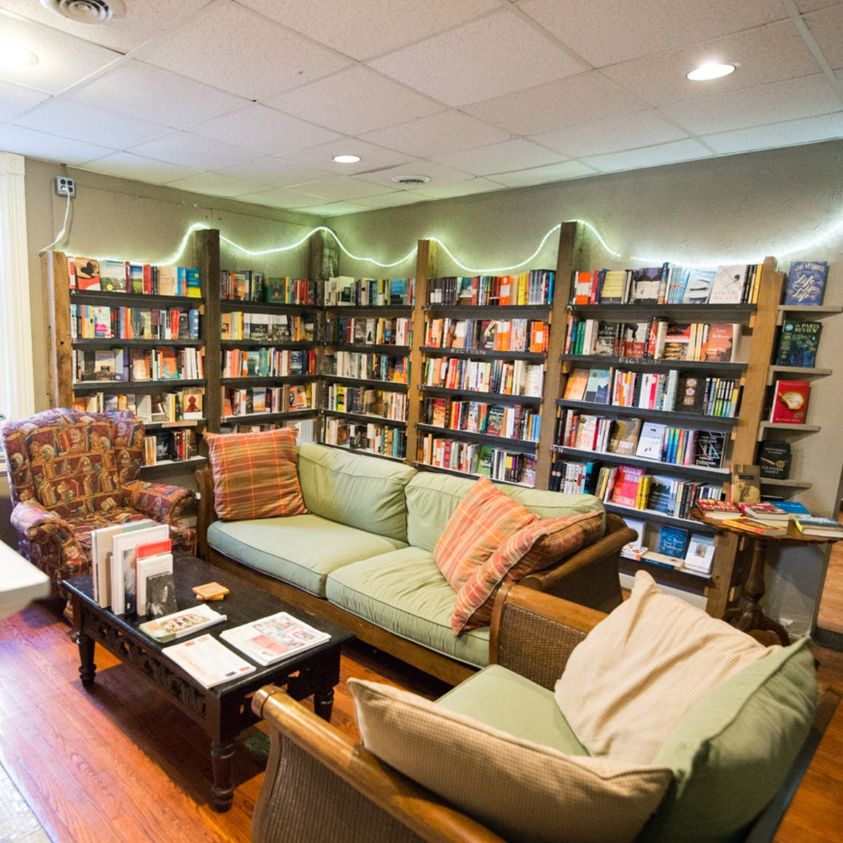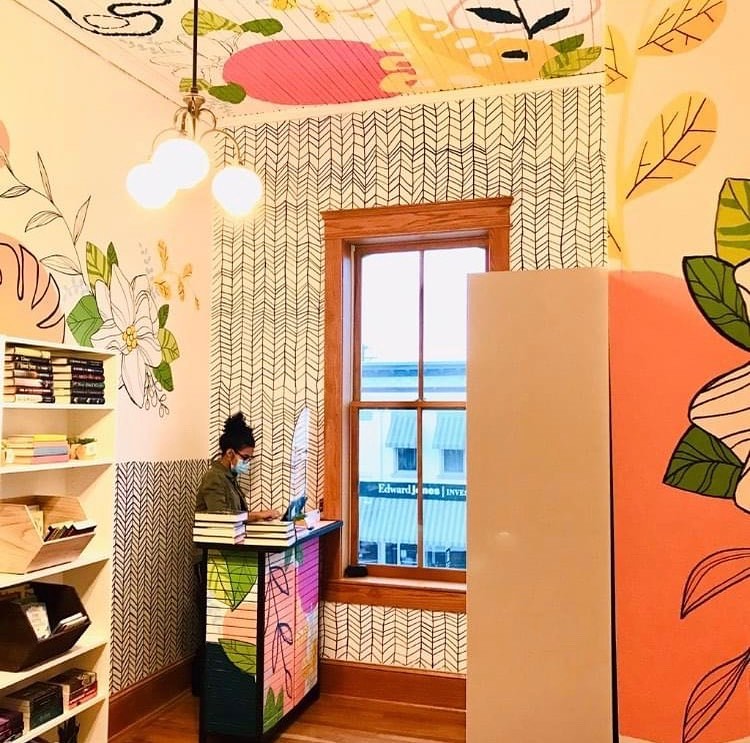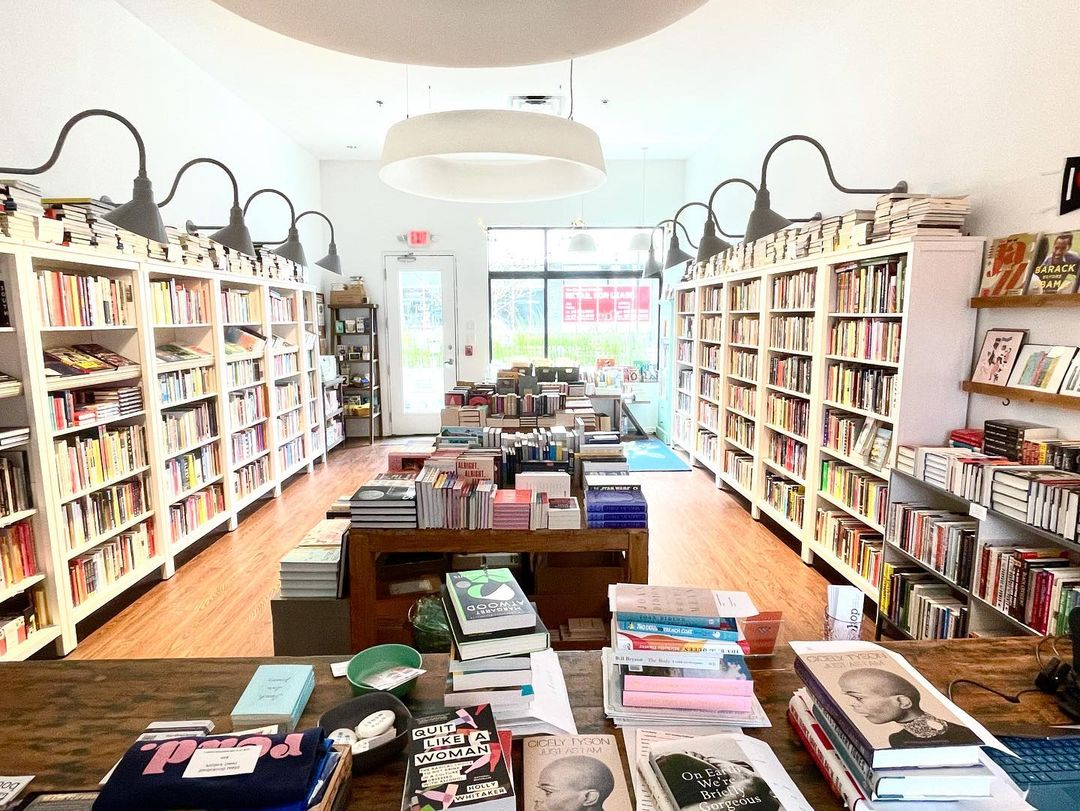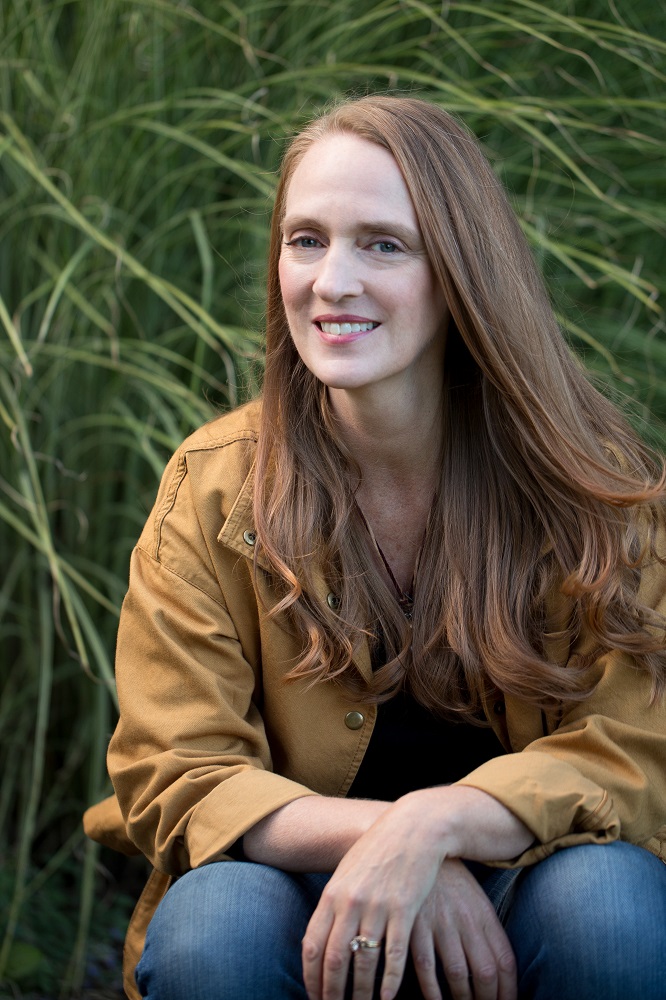 |
| photo: Sharona Jacobs |
Julie Carrick Dalton is the author of Waiting for the Night Song (Forge, January 12, 2021) and The Last Beekeeper (2022). Her writing has appeared in the Boston Globe, BusinessWeek, Electric Literature, the Chicago Review of Books and other publications. She is a frequent speaker and workshop leader on the topic of fiction in the age of climate crisis. Dalton owns a small farm in rural New Hampshire that inspired the setting for her debut novel.
On your nightstand now:
We Can Only Save Ourselves by Alison Wisdom; Wild Women and the Blues by Denny S. Bryce; The Rock Eaters by Brenda Peynado; The New Wilderness by Diane Cook; Big Girl, Small Town by Michelle Gallen; The Midnight Library by Matthew Haig; Leave the World Behind by Rumaan Alam.
Favorite book when you were a child:
The Dark Is Rising by Susan Cooper. In elementary school I spent summers at my grandparents' farm in the Appalachian corner of Maryland. No phone. No TV. No hot running water. Not even a radio. The Dark Is Rising books transported me and helped me see the possibility of magic in a creaky farm house and the endless woods.
Your top five authors:
Barbara Kingsolver, Jesmyn Ward, Alice Hoffman, Amitav Ghosh and Octavia Butler.
Book you've faked reading:
Anna Karenina by Leo Tolstoy. I've never seen the movie or discussed the plot with anyone. Whenever someone brings it up, I stealthily steer the conversation to another topic. The worst was when my daughter read it in high school. She loved it, and I had to slither out of the room every time she brought it up.
Book you're an evangelist for:
Everyone should read Light from Other Stars by Erika Swyler! I love passionate, nerdy, science-loving girls who grow up to do bold, amazing things. Swyler hits the perfect balance of science, speculation and heart.
Book you've bought for the cover:
The cover of The All-Night Sun by Diane Zinna grabbed me right away. The colors, the woman's braid and the brushstrokes evoke a sense of longing before you even know what the book is about. Simply gorgeous. I admit it was the cover that attracted me, but I can assure you Zinna's writing is just as beautiful as the cover art.
Book you hid from your parents:
Go Ask Alice by Beatrice Sparks. I had no idea what it was about when I scooped it up at a school book swap in fifth grade. I read it under the covers by flashlight and kept it hidden from parents because of all the drugs and sex. It had a huge impact on me. I remember in high school when kids I knew started experimenting with drugs, the first thing I thought was: Are you crazy? Have you read Go Ask Alice?
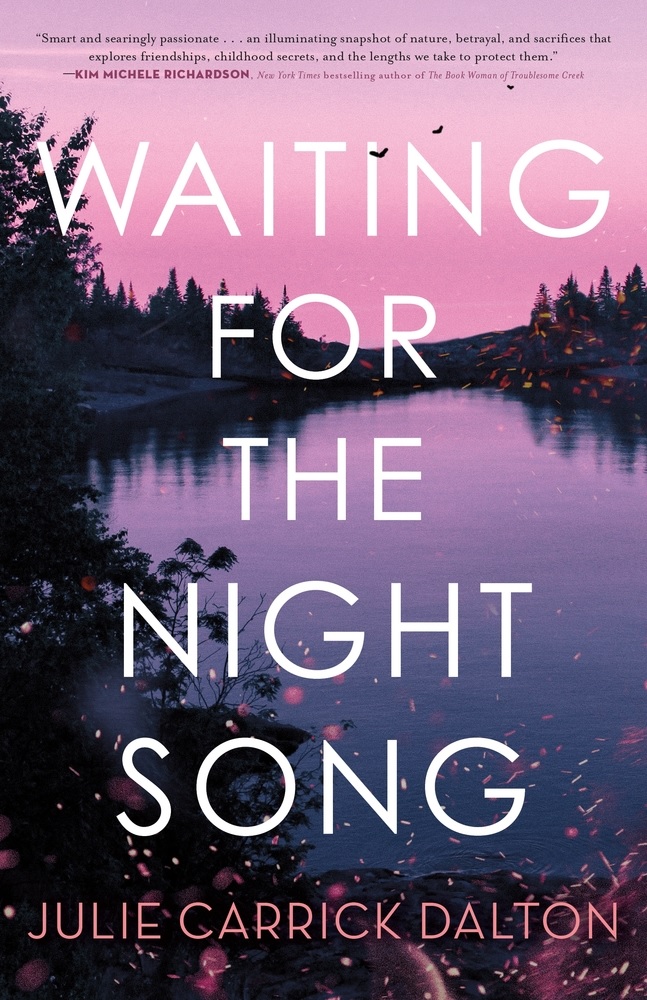 Book that changed your life:
Book that changed your life:
Jane Eyre by Charlotte Brontë. I was immediately drawn in by the feisty young Jane when I read it for the first time in high school. I've read it once a decade ever since, and I discover something new every time. There's a lot to like about this book, but there are also things about it I don't love. Sometimes I want to scream at Jane to make different choices. And to be honest, I don't love the way it ends. But it's those perceived imperfections that keep me coming back. Reading Jane Eyre made me realize I could disagree with an author's choices yet still love the book. (Fun fact: I named one of my four children Bronte because of my obsession with Jane Eyre.)
Favorite line from a book:
The first line from One Hundred Years of Solitude by Gabriel García Márquez: "Many years later, as he faced the firing squad, Colonel Aureliano Buendía was to remember that distant afternoon when his father took him to discover ice." How could anyone read that sentence and not want to read the rest of the book?
Five books you'll never part with:
I cherish the copy of Jhumpa Lahiri's Interpreter of Maladies I read while working on my master's thesis about writers who use food to develop character. I scribbled all over that book, dog eared it and highlighted it to death. Those stories are my comfort food.
Let Us Now Praise Famous Men by James Agee and Walker Evans is a nonfiction beauty about the lives of tenant farmers during the Great Depression. I read it for a journalism class in college and was inspired by the idea that artists can capture bits of life in words and images to evoke empathy capable of changing readers' hearts.
Blueberries for Sal by Robert McCloskey. My mother read it to me over and over, and I read it to my own four kids. My childhood copy fell apart from use, so I framed the end pages, which now hang in my kitchen. But don't worry, I have two other intact copies. Waiting for the Night Song is very loosely based on elements of Blueberries for Sal: a girl goes blueberry picking, gets distracted, makes poor decisions, encounters a bear, makes better choices and eventually finds her way home.
And lastly, I'll never part with my advanced reading copies of The Lost Apothecary by Sarah Penner and The Kindest Lie by Nancy Johnson. These two smart, beautifully written books feel like siblings to my own debut, Waiting for the Night Song. Sarah, Nancy and, I formed an accountability/support group during the early months of the pandemic as we were all three gearing up to launch our debut novels. We still meet up on Zoom every Sunday to vent, ask questions, share good news and keep each other motivated as we work on our second novels. I've pre-ordered hardcovers of both of their books, but the ARCs will always be meaningful reminders of how beautiful books and great friends helped me survive my debut year in the middle of a global pandemic.
Book you most want to read again for the first time:
Beloved by Toni Morrison. Morrison uses words with masterful precision that cut deeply and leave readers changed. I'd love to read Beloved again without knowing where it would take me or how it would affect me.
The TED Talk you would give on any literary topic:
I'd give a talk on the role storytelling plays in the way we discuss the climate crisis. I'm a huge fan of climate fiction--fiction that engages climate science. Whether they are thrillers, dystopian, contemporary, literary or combinations of genres, climate fiction offers a way to convey climate narratives to people who might not be interested in charts, graphs or research. It allows us to enter worlds that don't yet exist and imagine a changed future Earth--while we still have time and the ability to avoid that future. Cli-fi can also build empathy by illuminating the fact that the climate crisis is already here, it's already affecting populations around the world. If you think it isn't affecting you yet, maybe you need to check your privilege and ask who is being affected first and worst--and why.
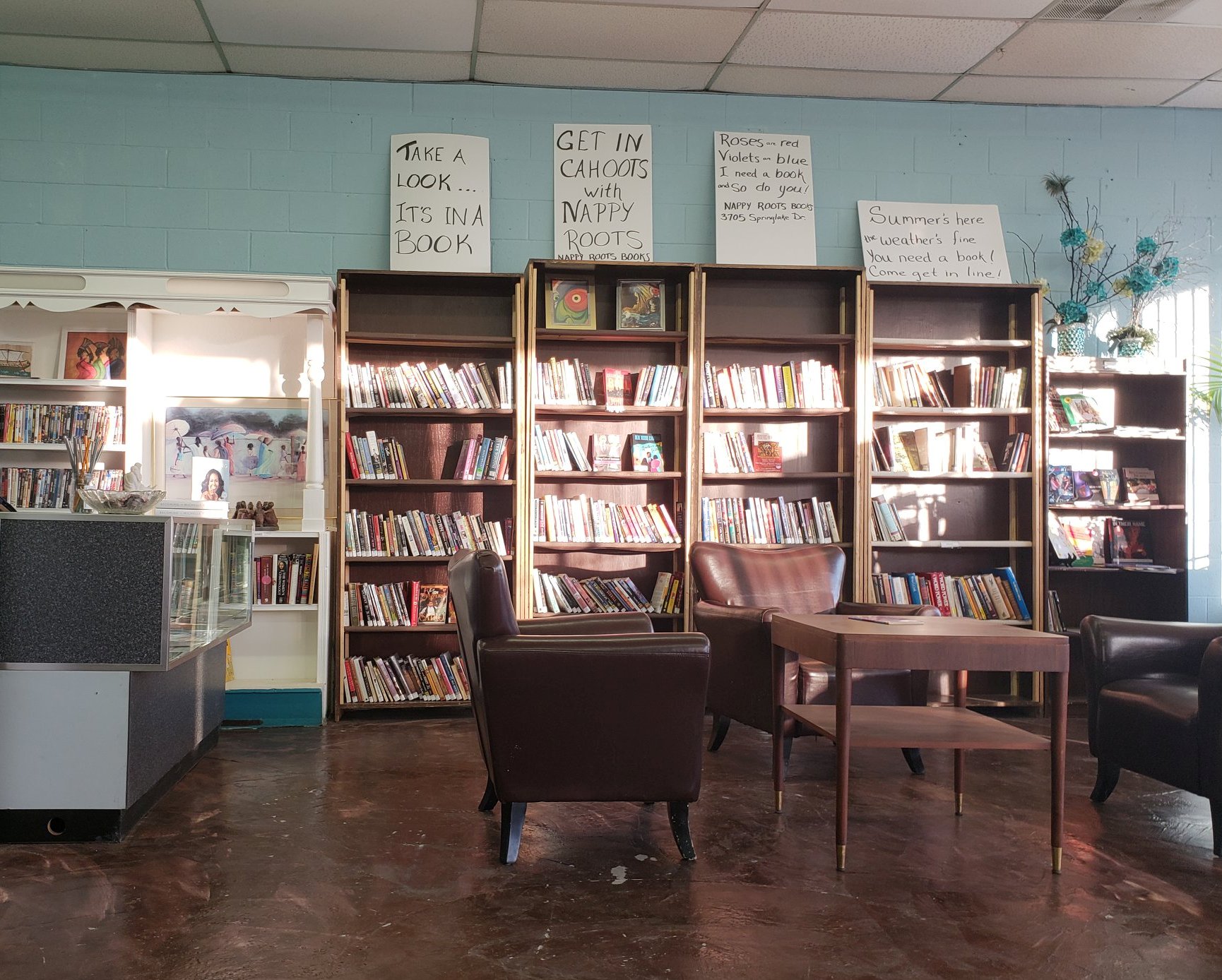 With the help of community members, Nappy Roots Books in Oklahoma City, Okla., has been able to pay back rent and prevent eviction, the Oklahoman reported. Store owner Camille Landry asked her customers for help last week, and the response was swift, with the community rallying around the store.
With the help of community members, Nappy Roots Books in Oklahoma City, Okla., has been able to pay back rent and prevent eviction, the Oklahoman reported. Store owner Camille Landry asked her customers for help last week, and the response was swift, with the community rallying around the store.









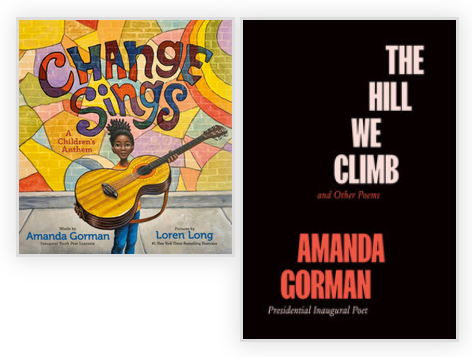 To meet the overwhelming early demand for upcoming books by
To meet the overwhelming early demand for upcoming books by 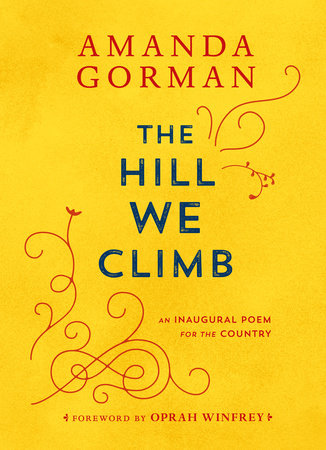 The two other titles, The Hill We Climb and Other Poems, the author's debut poetry collection, and her debut picture book, Change Sings: A Children's Anthem, illustrated by Loren Long, will be published September 21 as previously scheduled.
The two other titles, The Hill We Climb and Other Poems, the author's debut poetry collection, and her debut picture book, Change Sings: A Children's Anthem, illustrated by Loren Long, will be published September 21 as previously scheduled.
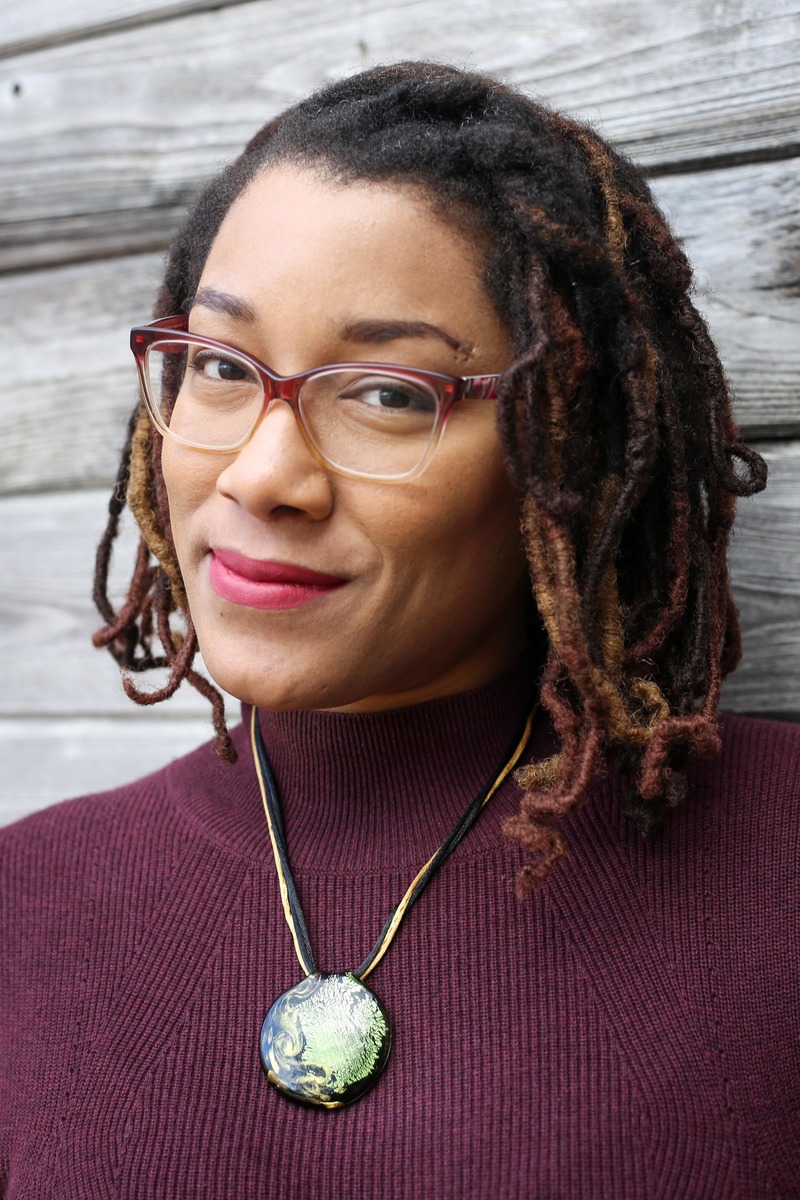
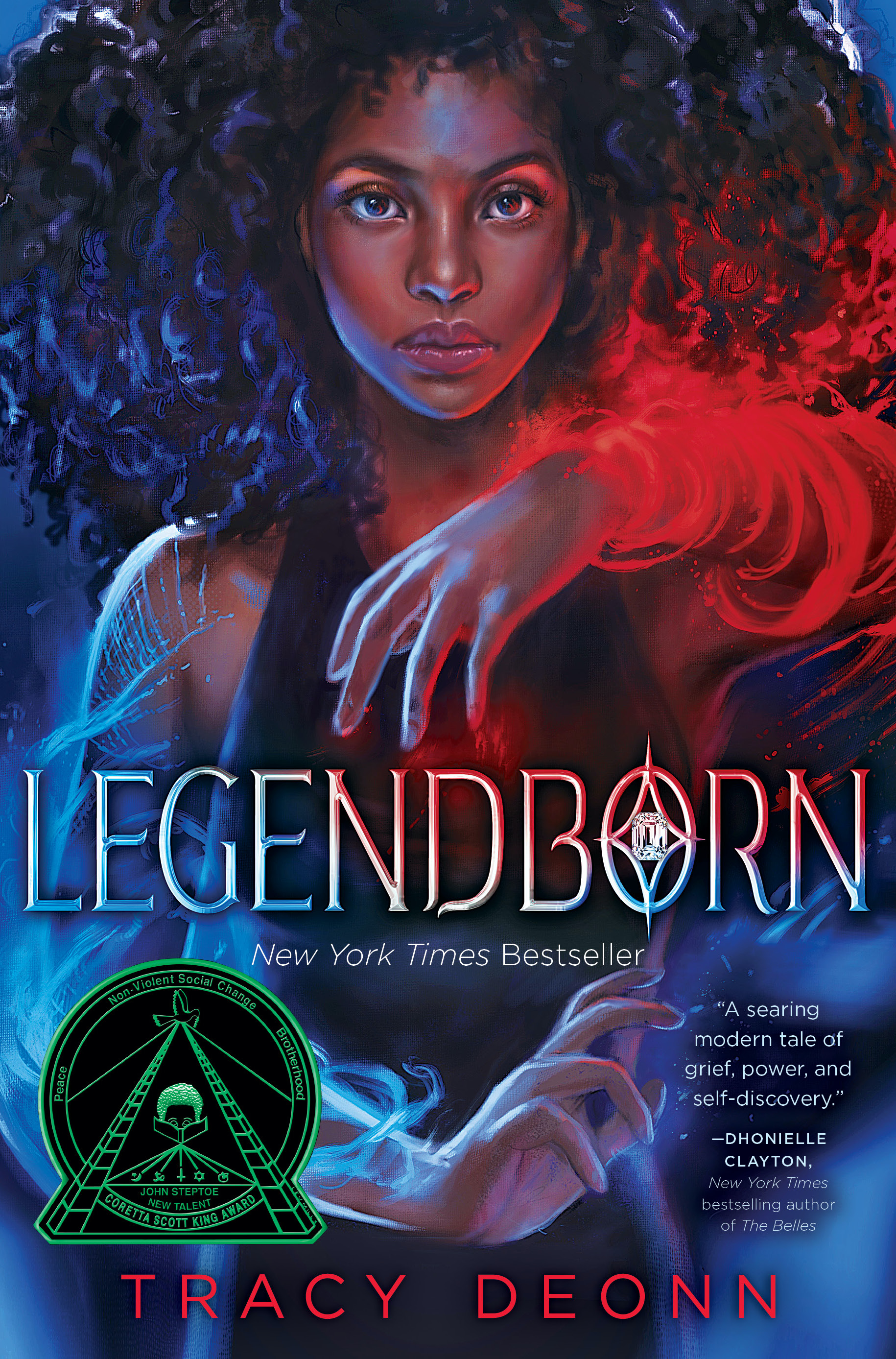 The concept of Legendborn is utterly entertaining--a contemporary Black and Southern twist on Arthurian legend. What inspired this book?
The concept of Legendborn is utterly entertaining--a contemporary Black and Southern twist on Arthurian legend. What inspired this book? 
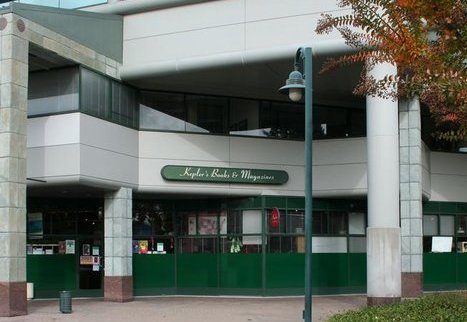 In Menlo Park, Calif.,
In Menlo Park, Calif.,  During the holidays, Kepler's set up an open-air bookstore in the plaza adjacent to the store, allowing customers to buy books and gifts without having to go inside or wait in line. Initially the team had planned to do this only for the holidays, but it proved so popular that they'll keep the open-air bookstore going "as long as needed."
During the holidays, Kepler's set up an open-air bookstore in the plaza adjacent to the store, allowing customers to buy books and gifts without having to go inside or wait in line. Initially the team had planned to do this only for the holidays, but it proved so popular that they'll keep the open-air bookstore going "as long as needed."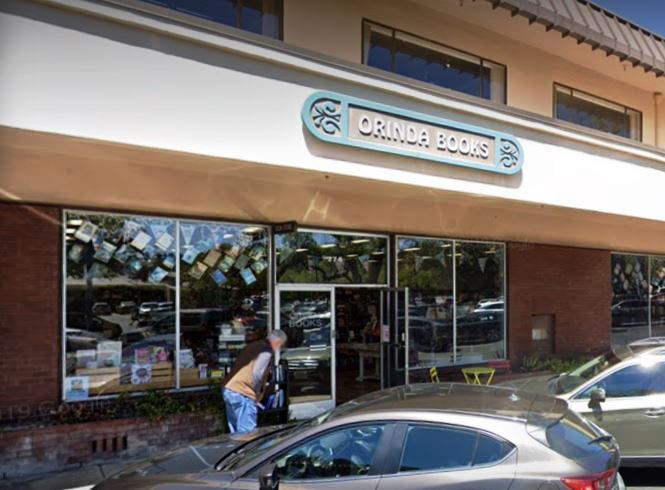 Pat Rudebusch, owner of
Pat Rudebusch, owner of 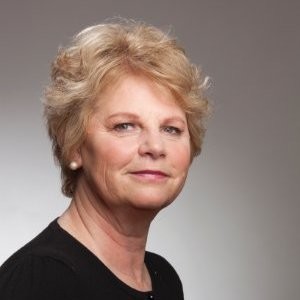
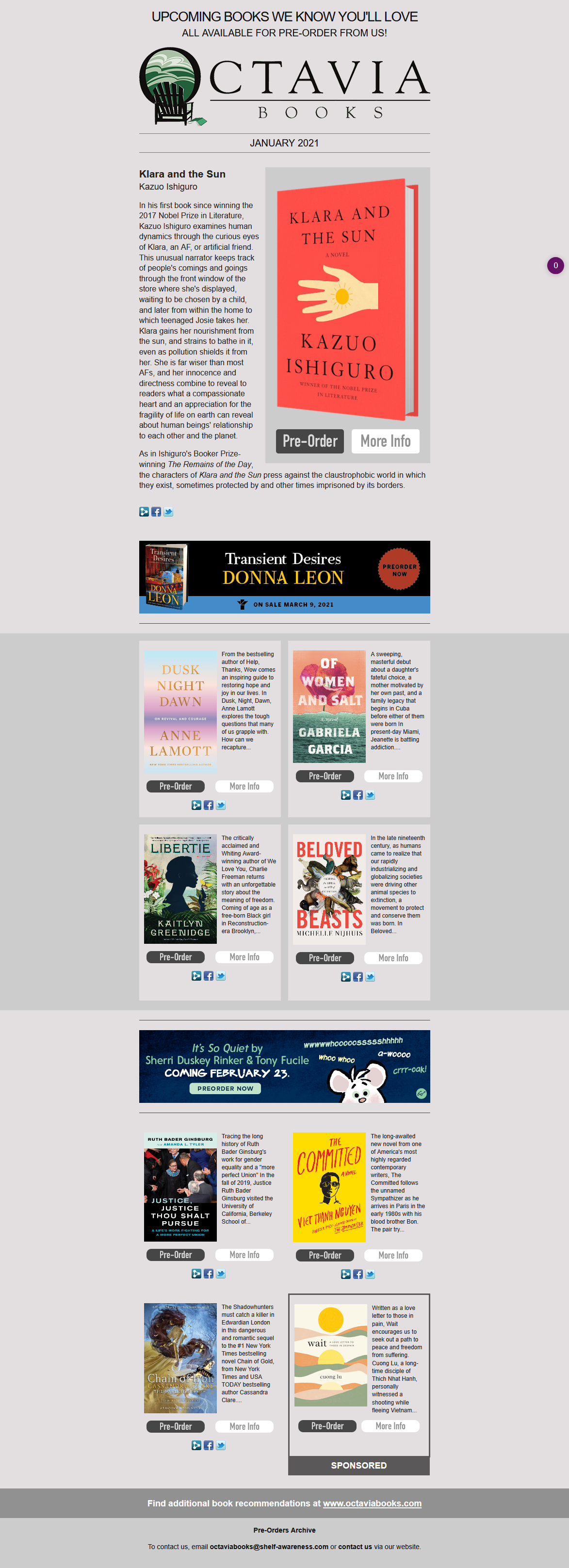 Last Wednesday, Shelf Awareness sent our monthly pre-order e-blast to nearly three-quarters of a million of the country's best book readers. The e-blast went to 729,936 customers of 153 participating independent bookstores.
Last Wednesday, Shelf Awareness sent our monthly pre-order e-blast to nearly three-quarters of a million of the country's best book readers. The e-blast went to 729,936 customers of 153 participating independent bookstores.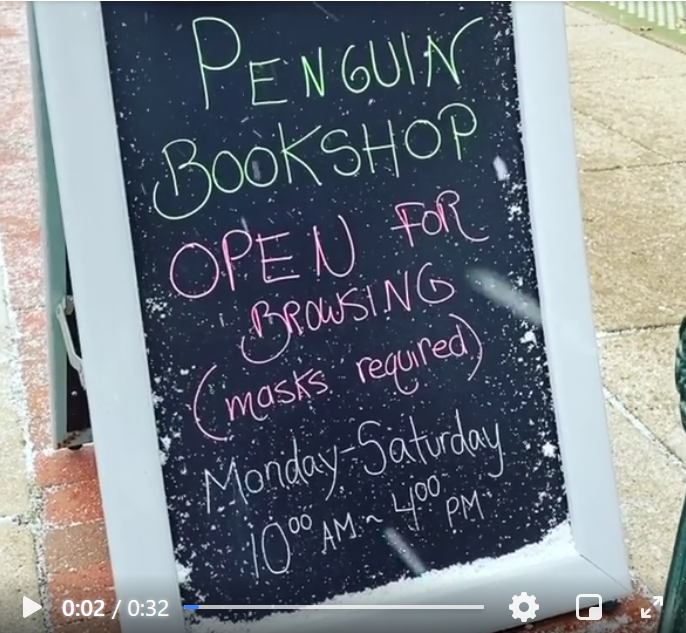
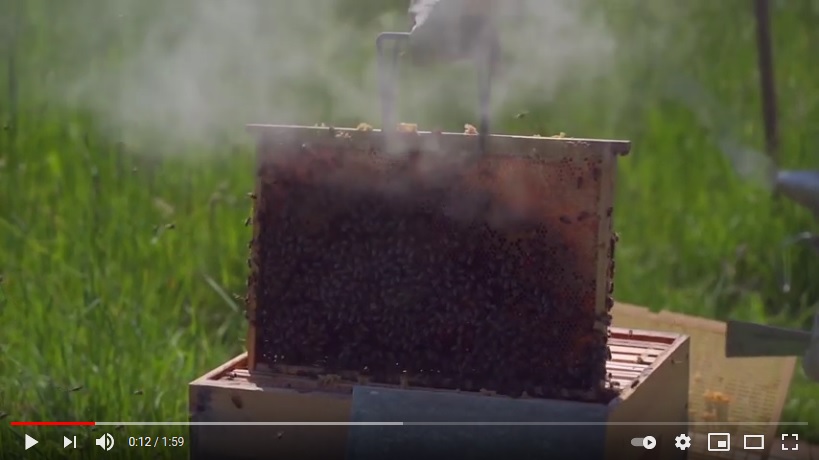 The Hive
The Hive
 Book that changed your life:
Book that changed your life: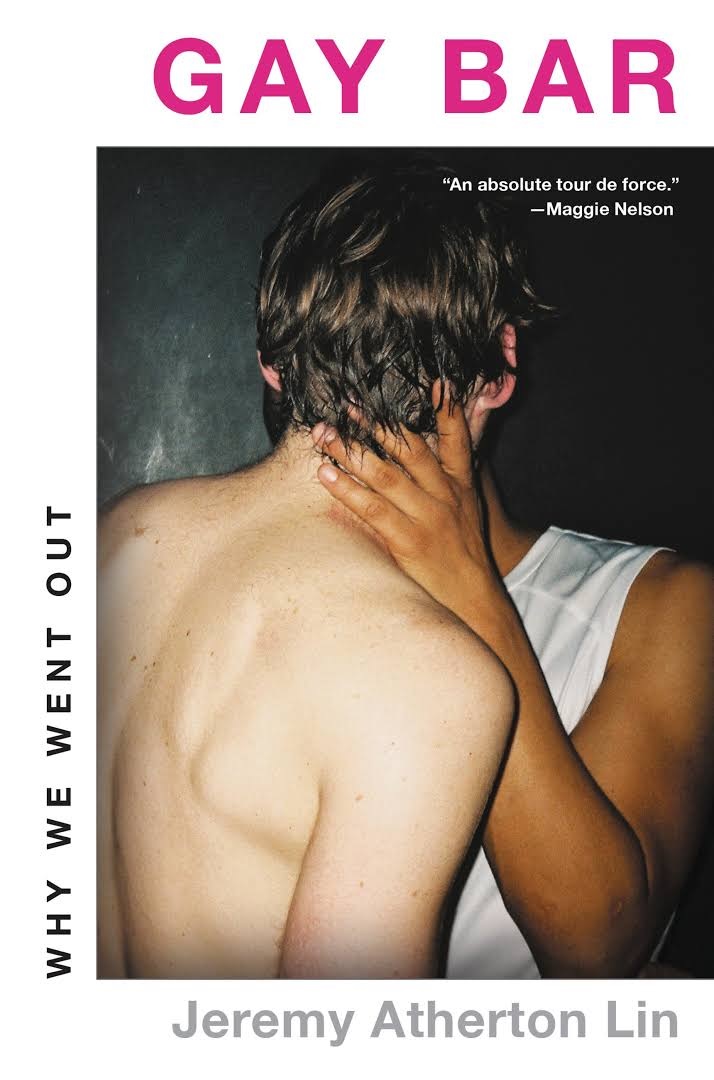 Jeremy Atherton Lin brings a wise, wry voice to his masterful Gay Bar: Why We Went Out. This thoughtful study is part memoir, part research project, part travelogue and a large part classic essay-as-assay, seeking answers on the page. His subtitle indicates a wondering: Why did we go out? The answers are various; they change over time and of course are personal for Lin, but he progresses toward an understanding of what the gay bar really was, is and might be. "The question arises as to what distinguishes an enclave from a quarantine, and whether either is any longer necessary." If gay no longer needs a bar, is this a victory, or a loss?
Jeremy Atherton Lin brings a wise, wry voice to his masterful Gay Bar: Why We Went Out. This thoughtful study is part memoir, part research project, part travelogue and a large part classic essay-as-assay, seeking answers on the page. His subtitle indicates a wondering: Why did we go out? The answers are various; they change over time and of course are personal for Lin, but he progresses toward an understanding of what the gay bar really was, is and might be. "The question arises as to what distinguishes an enclave from a quarantine, and whether either is any longer necessary." If gay no longer needs a bar, is this a victory, or a loss?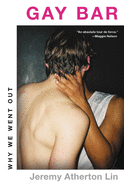
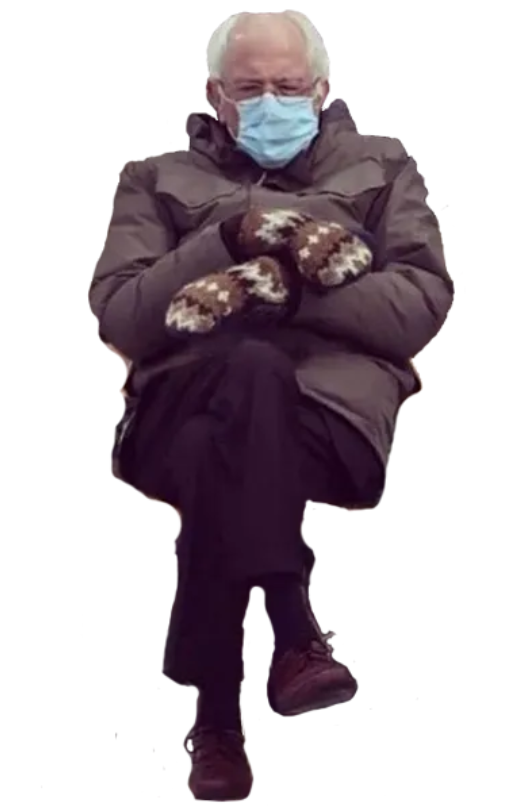 Where's Bernie? At some point during the week after President Joe Biden's Inauguration ceremony, a photo of bemittened Vermont Senator Bernie Sanders entered the Meme Hall of Fame. I suspect you already know that. But do you remember the precise moment when your brain patterns altered, and you suddenly realized that whenever anyone posted a photo on social media, your first instinct was to lean in and examine it for signs of Bernie in his chair, arms folded?
Where's Bernie? At some point during the week after President Joe Biden's Inauguration ceremony, a photo of bemittened Vermont Senator Bernie Sanders entered the Meme Hall of Fame. I suspect you already know that. But do you remember the precise moment when your brain patterns altered, and you suddenly realized that whenever anyone posted a photo on social media, your first instinct was to lean in and examine it for signs of Bernie in his chair, arms folded?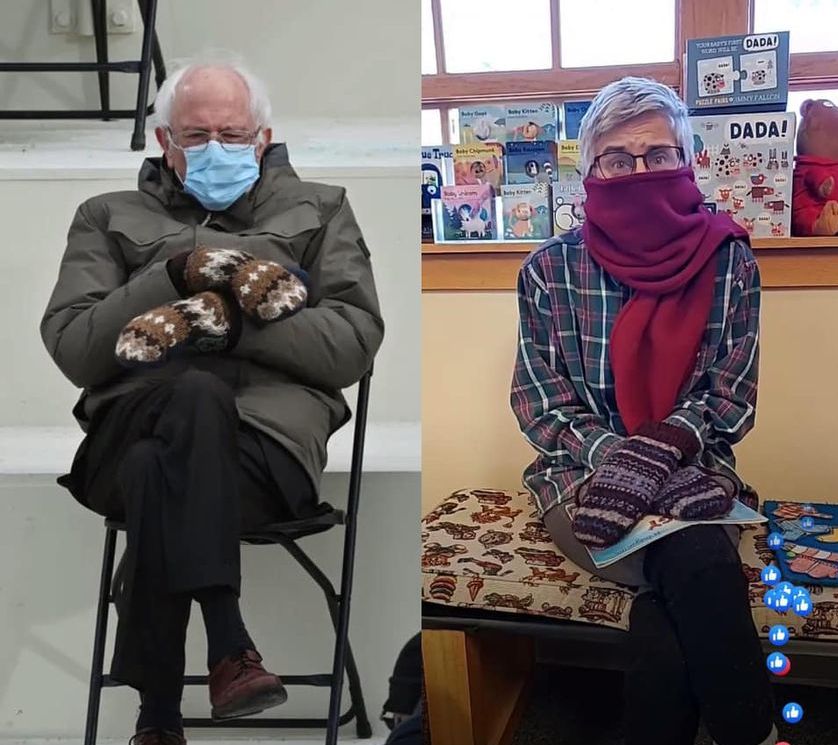 I particularly loved all the Bernie-at-our-bookstore memes, both
I particularly loved all the Bernie-at-our-bookstore memes, both 